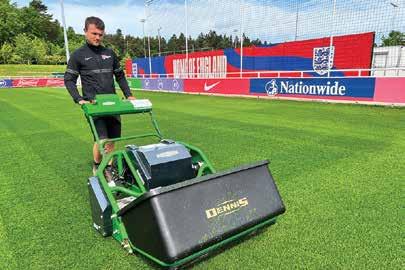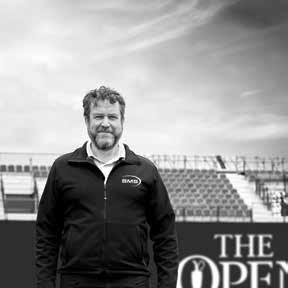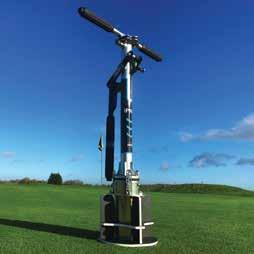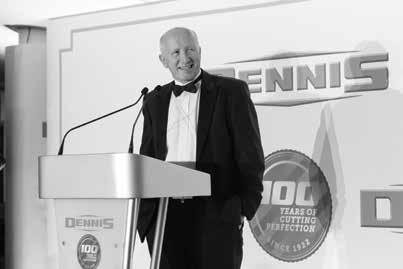
2 minute read
Stretegic changes to operations
James Buckholt Manging Director,

Brexit has forced BMS to make some strategic changes to their operations, including employing and training additional staff and bringing more manufacturing in-house. This includes additional engineering, welding and technical fabrications, which provides more control over quality and lead times. These changes have helped the company to reduce their reliance on overseas suppliers and improve their ability to respond to customer needs.
While raw material increases have affected some areas of the business, BMS has been working with supply partners to mitigate the impact. This has become a large part of the company's daily duties, and they continue to look for ways to manage costs and remain competitive.
To support their growth, BMS has recently relocated to a new, larger facility. This move will allow the company to expand their product development and research and development efforts, which will benefit their customers in the long term. With a focus on innovation and new product offerings, BMS is poised to continue their success in the amenity industry.


Despite the challenges of Brexit, BMS remains optimistic about the future. In fact, since Brexit, their export business has doubled with new partners in Europe and other countries. By focusing on their strengths and investing in their people and facilities, BMS is positioning themselves for long-term growth and success.
From the company owner, the changes brought on by Brexit have presented both challenges and opportunities for BMS Products. By taking a strategic approach to their operations, investing in their facilities, and staying committed to their customers, BMS has been able to adapt and thrive in the new business landscape. As the company looks towards the future, they remain optimistic about the opportunities ahead and are excited to continue their growth in the turf care and amenity industry.
Brexit also posed a huge challenge, due to the vast amount of paperwork and documents which were required to get products into Europe. We had a lot of training to overcome these issues and it has been a seamless transition. The pandemic created another challenge when the phone suddenly stopped ringing and people could no longer have demonstrations. At the start, the order book had gone to an all-time low but, as things improved, the order number rocketed past any previous year. Product sales grew 46% and, in 2022, we grew 35% on top of that previous year. It remains (as of April 2023), approximately three times what it is normally this time of year; both petrol and
As far as logistics are concerned, obtaining components has been a massive challenge. It can range from weeks to months and, in some cases, in excess of over a year to get hold of some components.
We have seen a 25% increase in the cost of components. We have done our best to keep control of the costs, but unfortunately, the cost has had to be passed onto the consumers. Energy, electric and gas bills have more than doubled, therefore manufacturing costs have had to also increase.
Despite all the challenges, we have continued to invest in innovation including new products and further development of our electric range of products. Further investment came at the end of 2022, when we purchased Lloyds Mowers of Letchworth and Hunter Grinders. Continual











